Contacts:
Tanya.Weinberg@georgetown.edu
Ashley@publicrightsproject.org
GARY, INDIANA, RESISTS MAJOR LEGAL CHALLENGE TO "WELCOMING CITY" POLICIES
Facing lawsuit by Citizens United architect Jim Bopp, city engages Georgetown Law’s Institute for Constitutional Advocacy and Protection and the Public Rights Project to fight back
(March 1, 2018) – In a new court filing, the city of Gary, Indiana, is defending its “welcoming city” ordinance from a lawsuit characterized by its architects as the first salvo in a potentially nationwide effort to roll back so-called “sanctuary city” or “welcoming city” policies.
“Our city passed the ordinance to demonstrate Gary’s commitment to ensuring public safety for all city residents and to enable all of our communities to report crime and cooperate with our police without fear,” said Gary Mayor Karen Freeman-Wilson. “Our welcoming city ordinance is fully consistent with state and federal law, and this new filing demonstrates our commitment to fighting this lawsuit and the dangerous effort to undermine local law enforcement priorities it represents.”
In May 2017, Gary enacted its welcoming city ordinance. Among other directives, it prohibits local officials, including police, from requesting immigration status information unless a court order requires them to do so. In December 2017, the Immigration Reform Law Institute and Citizens United architect James Bopp, Jr., filed a lawsuit claiming that Gary’s ordinance violated Indiana state law.
Gary engaged Georgetown Law’s Institute for Constitutional Advocacy and Protection (ICAP) and the Oakland-based Public Rights Project (PRP) to represent the city and defend its ordinance. Yesterday, ICAP and PRP submitted on Gary’s behalf a 54-page brief that vigorously defends Gary’s ordinance. The brief challenges a flawed reading of both Gary’s city ordinance and Indiana’s state law. Gary’s ordinance allows its police officers to share any immigration status information it may have with federal officials consistent with state and federal law. What the city’s ordinance prohibits are unnecessary and unwise attempts to collect such information in the course of ordinary police work and absent a court order. Moreover, the brief attacks the suit for requesting relief that would violate the Fourth Amendment, undermine public safety, and force Gary to redirect its limited resources away from critical local priorities.
“Gary’s welcoming city ordinance places no restrictions on federal immigration officials’ efforts to enforce immigration law, thus making it entirely consistent with Indiana state law,” said Joshua Geltzer, ICAP’s executive director and visiting professor at Georgetown Law. “What Gary’s ordinance does is empower local police to focus on local public safety priorities, including building and maintaining trust with all communities whose help local law enforcement needs to do its job.”
In a December op-ed, the Immigration Reform Law Institute said the lawsuit represents the “first real salvo” against sanctuary cities and that “many more will be required.” According to a new declaration submitted in the case by Gary’s police chief, however, the Gary Police Department can find no indication that federal immigration authorities have ever reached out to Gary for enforcement assistance, let alone been denied any such assistance requested.
“We’re asking the court to stop this misguided campaign,” said Jill Habig, PRP’s founder and president. “The people of Gary, Indiana, deserve officials who prioritize their safety. Forcing local police to occupy their finite time and resources with unlimited immigration enforcement is not what Indiana law requires and it’s a precedent that Gary would not be proud to set for other cities across the country.”
ICAP brings to its work on Gary’s behalf extensive experience in sanctuary cities litigation, including serving as co-counsel in the pending challenge to Texas’s anti-sanctuary city state law known as “SB4” and filing amicus briefs in support of challenges to the Justice Department’s new anti-sanctuary city policies brought by Chicago, by California, and jointly by San Francisco and Santa Clara. PRP brings to this case deep expertise in working with state and local law enforcement officials to defend core American values and to protect vulnerable communities.
Read the full brief here.
###
GEORGETOWN LAW and ICAP media contact:
Tanya.Weinberg@georgetown.edu
202-662-9694.o 202-577-7827.m
Georgetown University Law Center is a global leader in legal education and the preeminent U.S. law school based in the nation’s capital. A world-class faculty of celebrated theorists and leading legal practitioners offers students an unmatched breadth and depth of academic opportunities. Second to none in experiential education, the Law Center’s numerous clinics are deeply woven into the Washington, D.C., landscape. More than 20 centers and institutes forge cutting-edge research and policy resources across fields including health, the environment, human rights, technology, national security and international economics. Georgetown Law equips students to succeed in a rapidly evolving legal environment and to make a profound difference in the world, guided by the school's motto, “Law is but the means, justice is the end.”
PRP media contact:
Ashley@publicrightsproject.org
510-219-6855
Public Rights Project is a nonpartisan nonprofit dedicated to empowering state and local government to protect the rights and freedoms that define us as Americans. PRP seeds high-impact enforcement cases protecting civil rights, the environment, and economic justice in state and local government around the country, and recruits talented attorneys to work as two-year fellows in state and local public law offices. PRP is a project of the Tides Center.




